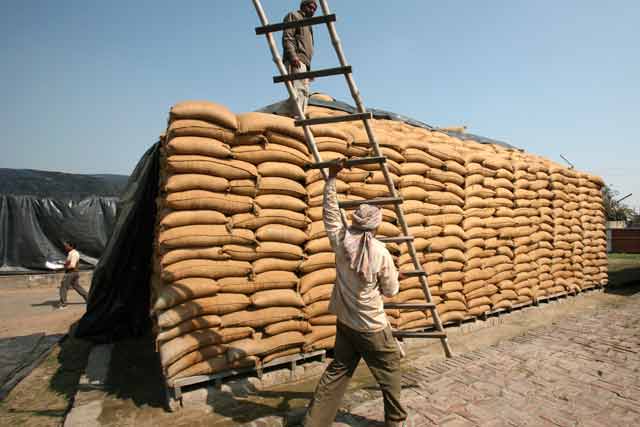Driven by memories of past poverty and the shortage psychology engendered by the pre-1991 licence-permit raj, Indians are born hoarders. Homemakers hoard everything from water to plastic bags. Politicians and realtors hoard land. Middlemen hoard anything they believe is likely to be in short supply - onions, potatoes, what-have-you.
The government of India hoards - well, food - and pays through its nose for the privilege. Others hoard to gain or, at least, not lose; the government hoards food to lose money by the sackful on it.
The official buffer stock requirement for foodgrain is 21 million tonnes of wheat and rice. But, as at the end of July 2014, the Food Corporation of India (FCI) was hoarding more than three times as much - about 68 million tonnes of rice, wheat, unmilled paddy and coarse grain. Even if the Food Security Act is implemented, this level of stock holding is excessive, since the requirement is expected to be around a maximum of 50-55 million tonnes.
Given this official food hoarding instinct, is it any wonder our food subsidy bills are careening out of control?
So, the NDA government’s decision yesterday (20 August) to set up a panel headed by former Himachal Chief Minister Shanta Kumar to revamp the FCI and save money has not come a day too soon. Der aaye par durust aye.
Consider the scale of the loss by sheer hoarding. According to this Times of India report, it costs Rs 438 crore to carry one million tonnes of foodgrain every year. So, if the FCI is hoarding 10-15 million tonnes of excess stock, it means the taxpayer is being robbed of Rs 6,570 crore every year. And the food is in godowns, not in the mouths of the hungry. And we are only talking about carrying costs. The subsidy costs are extra. Overall, it takes Rs 1,500-2,000 crore of subsidy for every million tonnes of grain.
Revamping the FCI and its goals are thus vital - and separate from the question of reducing the subsidy bill.
Shanta Kumar can come up with the right answer if he asks himself the right questions about the purpose of the FCI’s existence.
First, is it the FCI’s job to procure, store or distribute? Currently, it is all three. The FCI does the job inefficiently because the three goals require different competencies. FCI falls between three stools. Procurement skills are buying skills, whereas storage is a warehousing skill. Distribution depends on demand and supply logistics. Maybe these three jobs can be done by different agencies, with procurement done by the FCI (or its successor firm), storage by a mix of public and private warehouses, and logistics by a third company.
Second, Kumar has to ask a more basic question: what is the government’s goal in all this? The social purpose is to make food available where it is needed, when it is needed. Beyond the absolute minimum of stocks that have to always be in the pipeline, should government be in the business of static hoarding or managing availability through a better estimation of supply and demand? Would FCI be better off selling excess wheat in the spot global market and then buying it back forward based on estimated domestic demand or sit on millions of tonnes of stored grain - with quality deteriorating - at high costs?
It is worth recalling how corporates view their basic purposes. Xerox sells “copies” not copiers. Selling copiers is secondary to the purpose of selling copies to users. Users may or may not want to own copiers, but they do want to make copies. The two are different goals.
Similarly, Airtel wants to own its mobile customers, and not necessarily the hardware that runs mobile networks or manages the billing. It outsources large parts of the latter. Even the mobile towers now owned by telcos are being hived off to tower management companies, who bring better expertise and economies of scale to the job.
Kumar thus needs to ask the FCI: is it in the business of storing and distributing grain, or making food available to hungry mouths at the right time in the right place? The former needs a static mindset, the latter a dynamic understanding of supply and demand and logistics.
The old FCI is in a static mindset; the new FCI may have to be sharper and more agile in estimating demand and supply.
One thing is clear, though: the FCI does not need to be a congenital hoarder to serve food to this country. A bonus: the country can save money by refusing to let it remain a hoarder.


)
)
)
)
)
)
)
)
)



